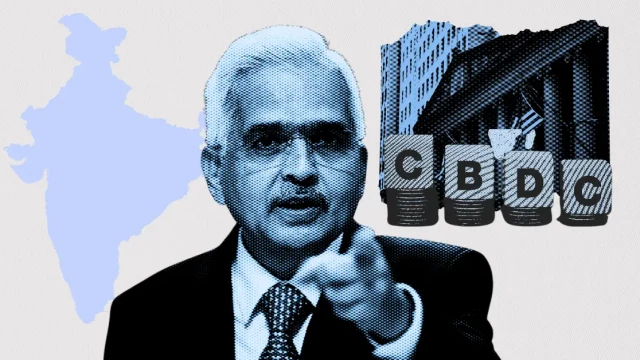
RBI Governor Says Crypto and Stablecoins Pose “Huge Risk” To India's Economy
CoinPediageneral
The Reserve Bank of India (RBI) Governor, Sanjay Malhotra, has issued a strong public warning against the rising adoption of cryptocurrencies and stablecoins in India, citing their “huge risk” to national financial stability and monetary policy, if not handled carefully.
📋 Article Summary
The Indian Crypto Conundrum: Navigating the Risks and Rewards
As the adoption of cryptocurrencies and stablecoins continues to gain momentum globally, the Reserve Bank of India (RBI) has issued a stern warning, highlighting the "huge risk" these digital assets pose to the country's economic stability and monetary policy.
RBI Governor Sanjay Malhotra's cautionary statement comes at a critical juncture for India's financial landscape, where the government has been grappling with the complex and rapidly evolving world of digital currencies. While the potential benefits of blockchain technology and crypto-based financial services are undeniable, the RBI's concerns underscore the delicate balancing act required to harness these innovations while safeguarding the nation's economic interests.
One of the primary challenges lies in the inherent volatility and speculative nature of the cryptocurrency market. The RBI's apprehension stems from the potential for crypto assets to disrupt traditional financial systems, creating ripple effects that could destabilize India's economic foundations. Malhotra's remarks echo the concerns of other central banks worldwide, which have expressed similar worries about the systemic risks associated with the proliferation of digital currencies.
Stablecoins, in particular, have drawn the RBI's scrutiny, as these cryptocurrencies pegged to traditional assets, such as fiat currencies or commodities, aim to provide price stability. However, the RBI views these instruments as posing a "huge risk" to India's monetary policy and financial stability, potentially undermining the central bank's ability to effectively manage inflation and interest rates.
The RBI's stance underscores the delicate balance between fostering innovation and mitigating risks in the rapidly evolving crypto landscape. As India continues to grapple with these issues, experts suggest that a comprehensive regulatory framework, coupled with robust risk management strategies, could be the key to unlocking the benefits of cryptocurrencies and stablecoins while safeguarding the country's economic interests.
One potential solution might involve a phased approach, where the government and the RBI collaborate to introduce gradual regulations, allowing for the responsible integration of digital assets into the financial system. This could involve measures such as know-your-customer (KYC) requirements, anti-money laundering (AML) protocols, and capital controls to address the RBI's concerns about the potential misuse of crypto assets.
Furthermore, the RBI's warnings highlight the need for increased collaboration between policymakers, industry stakeholders, and the broader crypto community to develop a shared understanding of the risks and opportunities presented by these emerging technologies. By fostering open dialogue and leveraging the expertise of industry leaders, India can navigate the complex crypto landscape and harness the power of blockchain innovation while mitigating the potential threats to its economic stability.
As the global crypto ecosystem continues to evolve, the RBI's stance serves as a reminder that the path forward requires a delicate balance between technological progress and financial prudence. By striking this balance, India can position itself as a leader in the digital asset space, reaping the rewards while safeguarding the long-term resilience of its economy.